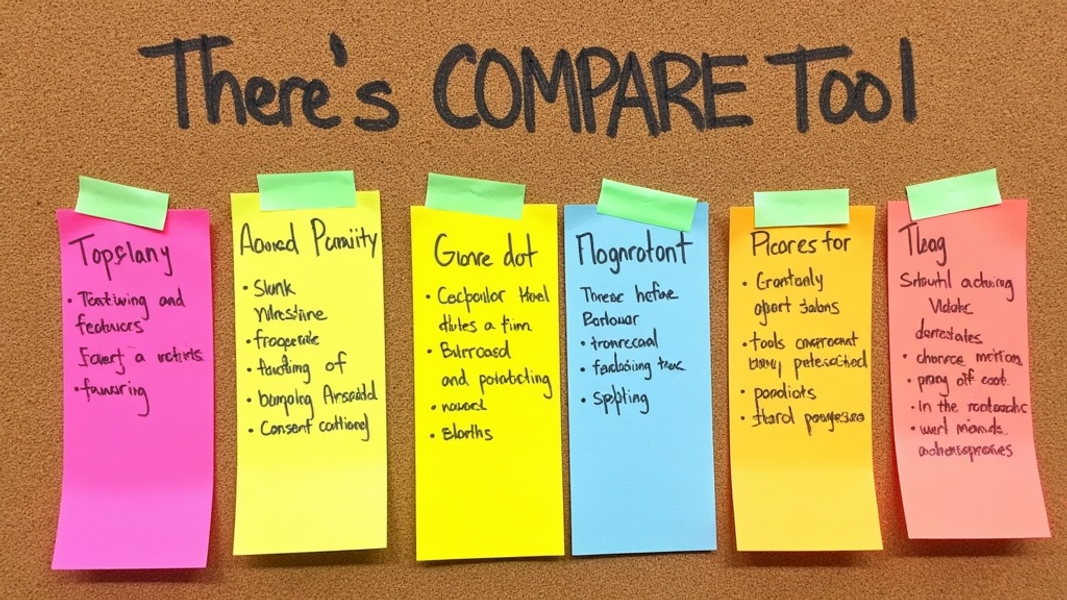
In the fast-moving world of digital marketing, creating content that ranks well on search engines is crucial. SEO writing tools have become indispensable for content creators aiming to improve their search visibility. This guide will explore the best SEO writing tools available, their key features, and how to use them effectively to enhance your content's performance.
Understanding SEO Writing Tools
What Are SEO Writing Tools?
SEO writing tools are software applications designed to help content creators optimize their writing for search engines. These tools analyze content and provide suggestions to improve its chances of ranking higher in search results. They often include features like keyword analysis, readability scoring, and content structure recommendations.
Benefits of Using SEO Writing Tools
Using SEO writing tools can significantly improve your content's search engine performance. They save time by automating many aspects of SEO optimization that would otherwise require manual research and analysis. These tools provide data-driven insights, helping you make informed decisions about your content strategy.
How SEO Writing Tools Work
Most SEO writing tools work by analyzing top-ranking content for specific keywords and providing recommendations based on this analysis. They look at factors like keyword usage, content length, and topic coverage. Some advanced tools use artificial intelligence to provide more nuanced suggestions for content improvement.
Essential Features of SEO Writing Tools
Keyword Research and Analysis
A key feature of SEO writing tools is their ability to perform keyword research. They help you find relevant keywords, assess their difficulty, and provide data on search volume. This information is crucial for choosing the right keywords to target in your content.
Content Optimization
Once you've chosen your keywords, these tools help you optimize your content around them. They often provide recommendations on keyword density, suggest related terms to include, and offer readability scores to ensure your content is easy to understand.
SERP Analysis
Many SEO writing tools include features for analyzing search engine results pages (SERPs). They can show you what types of content are ranking well for your target keywords and identify opportunities for featured snippets or other SERP features.
Content Brief Generation
Some tools can generate content briefs based on top-ranking content for a given keyword. These briefs often include suggested topics to cover, questions to answer, and a recommended content structure.

Plagiarism Checking
To ensure your content is original, many SEO writing tools include plagiarism checkers. These compare your content against a vast database of web pages to identify any potential instances of copied text.
Integration Capabilities
The best SEO writing tools often integrate with content management systems (CMS) and other marketing tools. This allows for a smoother workflow and easier collaboration among team members.
Top SEO Writing Tools Comparison
Surfer SEO
Surfer SEO is a popular tool known for its content editor and SERP analyzer. It provides real-time content scores and suggestions as you write.
Key features:
- Content editor with live optimization
- SERP analyzer
- Keyword research tool
- Content planner
Pricing: Starts at $59/month for the basic plan
Pros:
- User-friendly interface
- Comprehensive SERP analysis
- Integrates with Google Docs
Cons:
- Can be expensive for small businesses
- Learning curve for some features
Frase
Frase is an AI-powered tool that focuses on content optimization and brief creation.
Key features:
- AI-powered content brief generator
- Content optimization tools
- Question research
Pricing: Starts at $44.99/month for the basic plan
Pros:
- Excellent for creating comprehensive content briefs
- AI-powered content suggestions
- Good for answering user questions
Cons:
- Limited keyword research capabilities
- Can be overwhelming for beginners
MarketMuse
MarketMuse uses AI to provide content intelligence and strategy recommendations.
Key features:
- AI-driven content planning
- Competitive analysis
- Content optimization
Pricing: Custom pricing, starts around $600/month
Pros:
- Deep, AI-powered content analysis
- Comprehensive topic modeling
- Excellent for content planning
Cons:
- Expensive for small businesses or individual creators
- Steep learning curve
Clearscope
Clearscope is known for its user-friendly interface and detailed content reports.
Key features:
- Content optimization reports
- Keyword discovery
- Google Docs integration
Pricing: Starts at $170/month
Pros:
- Easy to use
- Detailed, actionable reports
- Good for teams
Cons:
- Limited keyword research features
- Can be pricey for individual users
SEMrush Writing Assistant
The SEMrush Writing Assistant is part of the larger SEMrush suite of SEO tools.
Key features:
- SEO recommendations
- Readability analysis
- Tone of voice consistency
Pricing: Included in SEMrush plans, starting at $119.95/month
Pros:
- Part of a comprehensive SEO toolkit
- Real-time optimization suggestions
- Plagiarism checker included
Cons:
- Requires a SEMrush subscription
- Less specialized than standalone writing tools
Contly AI
Contly AI is an advanced AI-powered content creation and optimization tool.
Key features:
- AI-powered content generation
- Automated keyword research and optimization
- SEO-optimized article creation
- Efficient publishing workflow
Pricing: Custom pricing based on needs
Pros:
- Streamlines the entire content creation process
- Ideal for small businesses and digital agencies
- Helps grow organic traffic quickly
Cons:
- May require fine-tuning for specific brand voices
- Pricing not publicly available
How to Choose the Right SEO Writing Tool
Assess Your Needs and Goals
Before choosing an SEO writing tool, consider your specific needs. Are you a solo content creator, or do you need a tool for a large team? How much content do you produce monthly? What's your budget? Answering these questions will help narrow down your options.
Evaluate Tool Capabilities
Compare the features of different tools against your requirements. Look for tools that offer the specific functionalities you need, such as keyword research, content optimization, or plagiarism checking. Consider the ease of use and whether the tool integrates with your existing workflow.
Consider Scalability
Choose a tool that can grow with your business. If you're planning to increase your content production, ensure the tool can handle higher volumes and offers features you might need in the future.
Read User Reviews and Testimonials
User reviews can provide valuable insights into a tool's real-world performance. Look for reviews from users in similar industries or with similar content needs to yours.
Take Advantage of Free Trials
Most SEO writing tools offer free trials. Use these to test the tools and see which one fits best with your workflow and meets your needs. For example, you can try Contly AI's advanced features with a free trial at their website.

Best Practices for Using SEO Writing Tools
Combine Tool Insights with Human Expertise
While SEO writing tools provide valuable insights, they shouldn't replace human judgment. Use the tools to guide your content creation, but always apply your own expertise and understanding of your audience.
Focus on User Intent, Not Just Keywords
Don't get too caught up in keyword density or hitting specific metrics. Instead, use the insights from SEO tools to help you create content that truly addresses user intent. This approach will lead to better engagement and, ultimately, better search rankings.
Maintain a Natural Writing Style
Avoid forcing keywords into your content in ways that sound unnatural. The best SEO content reads well for human users first, with keywords integrated seamlessly.
Regularly Update and Optimize Existing Content
Don't just use SEO writing tools for new content. Regularly review and update your existing content using these tools to keep it fresh and relevant.
Use Multiple Tools for Comprehensive Insights
No single tool is perfect. Consider using a combination of tools to get a more comprehensive view of your content's SEO performance and opportunities for improvement.
Stay Updated on SEO Trends and Algorithm Changes
SEO is always changing. Keep up with the latest trends and search engine algorithm updates, and be prepared to adjust your use of SEO writing tools accordingly.
The Future of SEO Writing Tools
AI and Machine Learning Advancements
As AI and machine learning technologies continue to advance, we can expect SEO writing tools to become even more sophisticated. They may offer more accurate predictions of content performance and more nuanced optimization suggestions.
Voice Search Optimization
With the rise of voice-activated devices, SEO writing tools are likely to incorporate more features for optimizing content for voice search queries.
Integration with Other Marketing Tools
We'll likely see greater integration between SEO writing tools and other marketing technologies, creating more comprehensive content marketing platforms.
Predictive Analytics for Content Performance
Future SEO writing tools may offer more advanced predictive analytics, helping content creators forecast the potential performance of their content before it's even published.
To experience the cutting edge of AI-powered SEO writing, you can check out Contly AI's features at their website.
Conclusion
SEO writing tools have become essential for content creators looking to improve their search engine visibility. By understanding these tools and how to use them effectively, you can create content that not only ranks well but also provides value to your audience. Remember, while these tools are powerful, they're most effective when combined with human creativity and expertise. As you explore different SEO writing tools, focus on finding the ones that best support your specific content goals and workflow.
